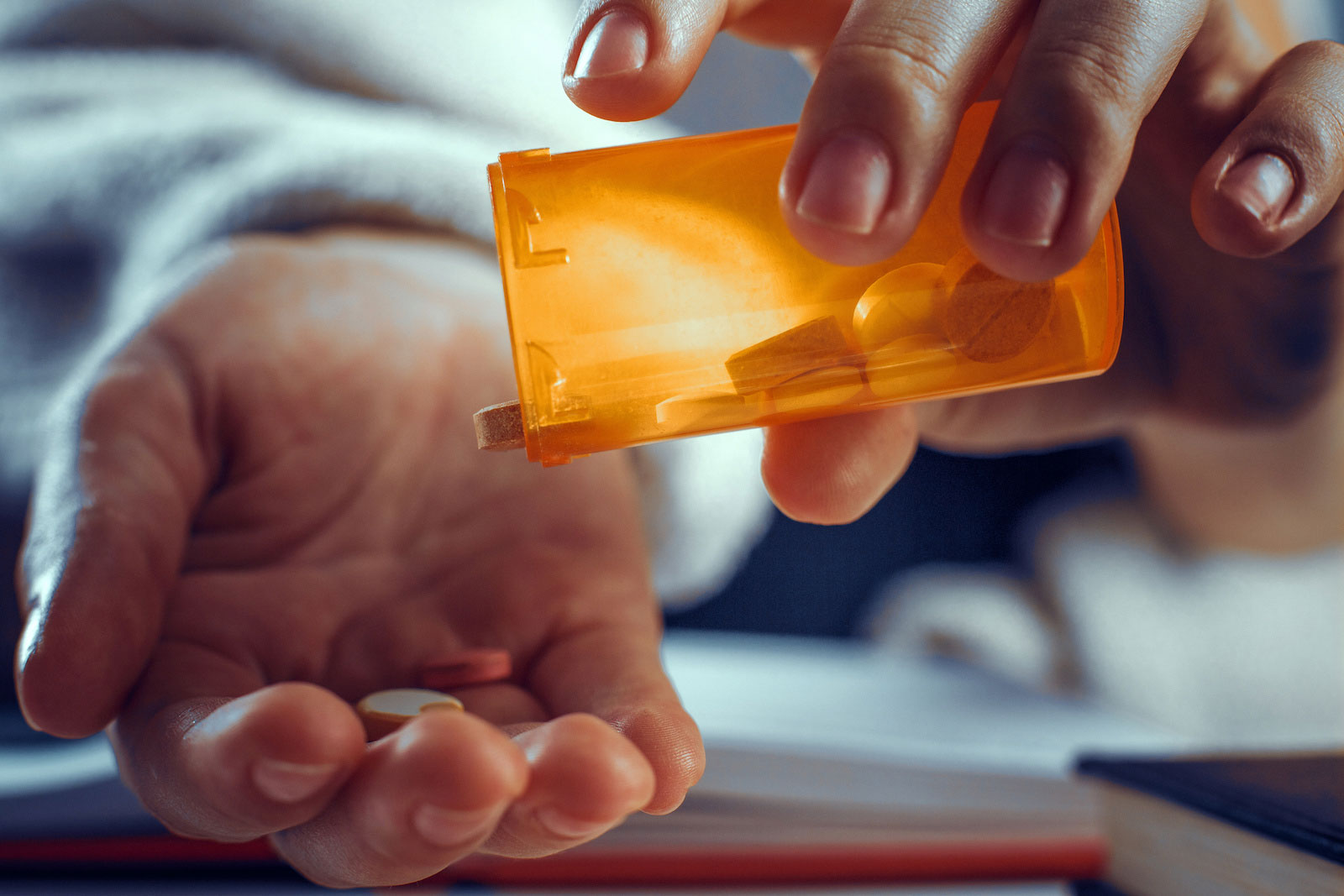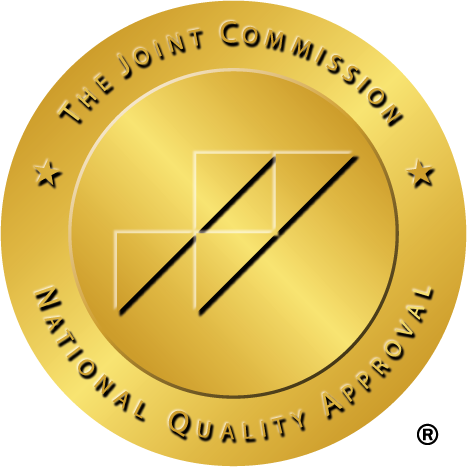Table of Contents
- Is Adderall® Physically and Psychologically Addictive?
- Can You Stop Taking Adderall® Cold Turkey or Will there b Adderall® Withdrawal Symptoms?
- What are the Symptoms of Adderall® Withdrawal?
- How Long is the Adderall® Withdrawal Period?
- How Do You Overcome an Adderall® Addiction with Limited Adderall® Withdrawal Symptoms?
- How Can I Recover from Addiction with Limited Adderall® Withdrawal Symptoms as a High-Level Professional?
- Don’t Suffer From Adderall® Withdrawal Alone. Help is Available.
When slowing down or stopping the use of Adderall®, Adderall® withdrawal symptoms are something to be taken very seriously by you an and your healthcare provider.
Whether your doctor prescribed you Adderall® to treat the symptoms of a mental health condition or you began taking it without a prescription to improve performance in a high-stakes career, taking Adderall® became an addiction. Now, you are suffering the effects of Adderall® abuse and trying to regain control of your life.
When you decide that your last dose is going to be your last dose, it’s imperative that you recognize the symptoms of Adderall® withdrawal.
Is Adderall® Physically and Psychologically Addictive?
Physically, there is a high abuse potential even if Adderall® is taken as prescribed. The body can become dependent on Adderall® as the drug causes chemical interactions in the body, and there will most definitely be Adderall® withdrawal symptoms should you try to change how often you’re taking the medication or quit cold turkey.
Psychologically, although the drug isn’t taken to achieve a “high” feeling, individuals may feel as if they cannot function without the drug or that their performance or worthiness in the workplace depends on the amount of Adderall® they take.
Can You Stop Taking Adderall® Cold Turkey or Will there b Adderall® Withdrawal Symptoms?
It is never safe to abruptly stop taking a drug without speaking to a healthcare professional. Stimulant withdrawal can result in intense cravings and relapse. With drugs like Adderall®, you can experience life changing and dangerous Adderall® withdrawal symptoms.
Seeking help from a treatment center specializing in Adderall® abuse is the most efficient and effective way to detox.
What are the Symptoms of Adderall® Withdrawal?
Adderall® is an amphetamine. Amphetamine or Adderall® withdrawal can be uncomfortable and lead to a “crash.” Symptoms of this “crash” may include:
- Severe cravings for the drug
- Increased hunger
- Sleep problems, alternating between minimal sleep and sleeping too much
- Vivid dreams
- Mood swings and irritability
- Anxiety, depression, and panic attacks
- Fatigue and slow movements or reflexes
- Increased heart rate and blood pressure
- Suicidal thoughts or ideations
Adderall® withdrawal symptoms [1] can range from mild to severe. Detoxification can be dangerous to attempt on your own and should be done under the supervision of medical professionals.
How Long is the Adderall® Withdrawal Period?
The Adderall withdrawal timeline may differ slightly for everyone, depending on the amount of the drug taken, the frequency of use, and how long you’ve taken the drug.
Generally, however, the Adderall® withdrawal timeline will follow the below:
| Week | Adderall® Withdrawal Symptoms |
| 1 | Initial withdrawal symptoms: intense cravings, fatigue, trouble sleeping, restlessness, and mood changes including increased irritability. |
| 2 | Fatigue and mood changes continue, however, sleep begins to return to a normal pattern. |
| 3 | Symptoms begin to subside. If an individual has taken higher than average amounts of Adderall® or has taken the drug for many years, symptoms may linger. |
| 4 | Physical symptoms cease, however, psychological symptoms may remain. |
Substance Use Disorder Treatment After Adderall® Detox
No matter how long ago an individual has stopped taking Adderall®, without treating the underlying causes that lead to Adderall® addiction in the first place, the potential for relapse is there.
A drug addiction to prescription stimulants should not be taken lightly. It is important that after Adderall® detox that individuals seek behavioral therapy and other addiction treatment therapies to cope with an Adderall®-free life.
How Do You Overcome an Adderall® Addiction with Limited Adderall® Withdrawal Symptoms?
There are specialized treatment programs available for those suffering from Adderall® addiction so that that the uncomfortable and often dangerous Adderall® withdrawal symptoms can be avoided as much as possible. Because many people who become dependent on Adderall® use to “get by” in school or in their careers, an outpatient substance abuse treatment program is often preferred.
Outpatient treatment options allow the client to meet familial and career obligations while undergoing therapy for addiction.
How Can I Recover from Addiction with Limited Adderall® Withdrawal Symptoms as a High-Level Professional?
Quitting Adderall® is a physical and psychological commitment, one that must be balanced with your professional obligations. You know that you need to detox from stimulants, but your responsibilities cannot fall by the wayside. Managing the side effects of Adderall® withdrawal must be done with finesse.
At New Waters Recovery, we understand the unique barriers faced by high-level executives looking to recover from Adderall® addiction but cannot–or do not wish to–commit to a full time inpatient rehabilitation. Our team of clinicians can arrange treatment for you from medical detox to discreet outpatient treatment programs to aftercare programs.
If you or a loved one are suffering from the effects of Adderall® addiction but admission to a traditional rehab center is not desired, call and speak with one of our representatives.
Don’t Suffer From Adderall® Withdrawal Alone. Help is Available.
Detoxing from Adderall® is an important first step in overcoming addiction, but you don’t have to go it alone. Adderall® withdrawal symptoms can be intense, uncomfortable, and difficult to manage while fulfilling obligations outside of your recovery. We can help.
At New Waters Recovery, it is possible to recover from Adderall® addiction while still living your life. Don’t go it alone. Call and speak to one of our representatives today to kick your Adderall® habit for good.
Frequently Asked Questions About Adderall® Withdrawal
Below are answers to common questions surrounding Adderall® withdrawal and Adderall® detox:
Sources
- [1] Drugs.com (n.d.). How long does adderall withdrawal last? Retrieved from https://www.drugs.com/medical-answers/long-adderall-withdrawal-3572393/ on 2023, January 17
- [2] P. Tardner. IJEST.org. (2022, April 5). Adderall and depression. Retrieved from https://www.ijest.org/nootropics/adderall-and-depression/ on 2023, January 17
- [3] Pattemore, C. Healthline. (2023, January 20). How do adderall and meth (methamphetamine) differ? Retrieved from https://www.healthline.com/health/adhd/how-do-adderall-and-meth-methamphetamine-differ on 2023, January 17
New Waters Recovery Editorial GUIDELINES
At New Waters Recovery, we take your health and wellness seriously. We have a thorough process in place to ensure the integrity of information that is displayed on our website. All content published to our site undergoes a rigorous medical review by a doctorate level clinician to ensure medical accuracy. Read More About Our Process






